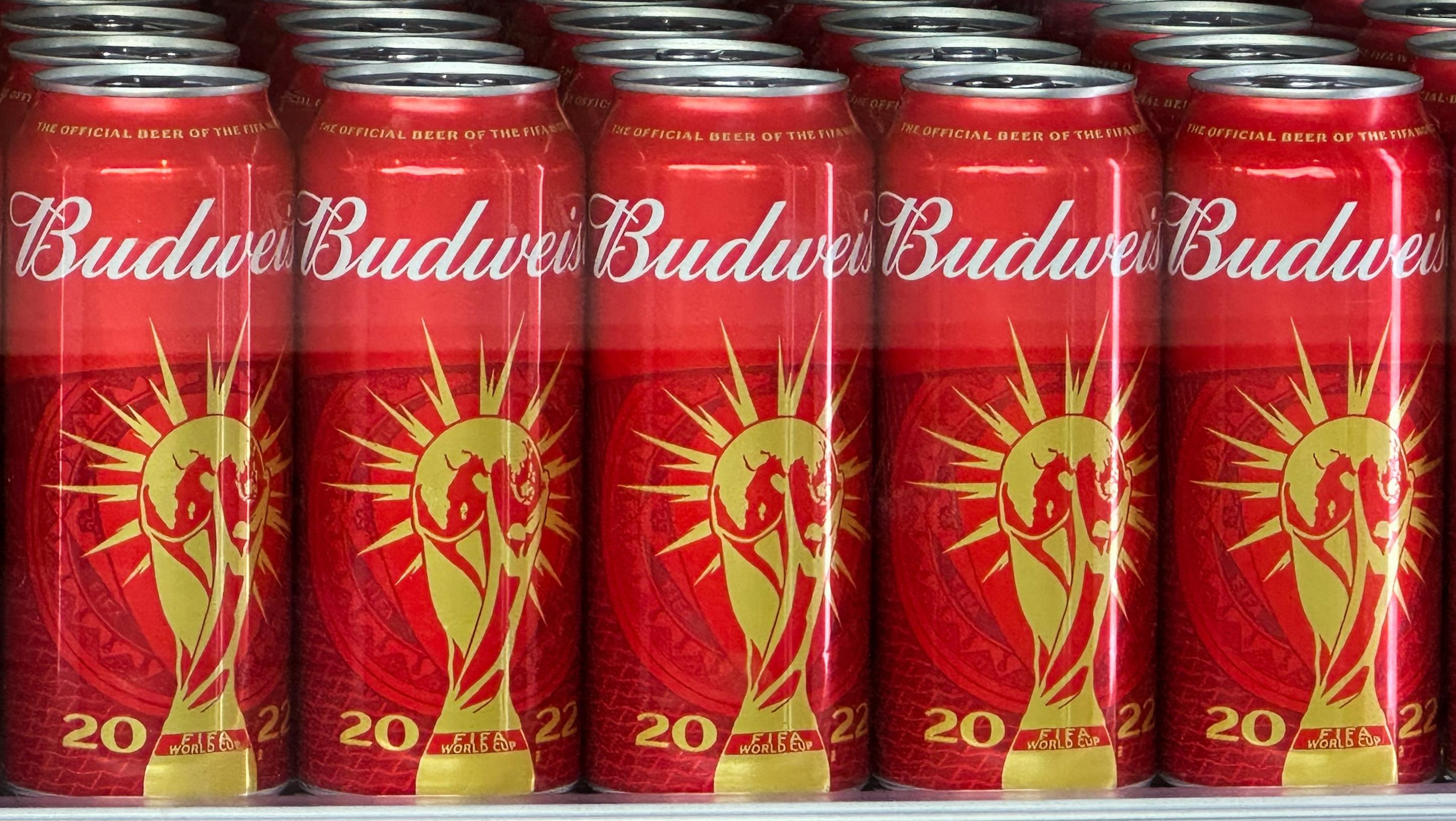Qatar Bans All Beer At 2022 FIFA World Cup
Another last-minute decision in Qatar outlaws all beer from the stadium. Budweiser can't be happy.
Earlier this week, Qatari officials made a last-minute announcement that put the World Cup's relationship with longtime beer sponsor Budweiser in jeopardy. As we reported, despite FIFA having more than a decade of lead time to figure out how to balance the league's commitment to Budweiser with Qatar's strict guidelines surrounding alcohol, the association told Budweiser just eight days before the World Cup that all beer tents must be moved from inside the stadium to much less visible and accessible locations outside the stadium. And now, just two days before the World Cup kicks off on Sunday, The New York Times reports that beer will be banned altogether from games during the month-long tournament.
How to drink in Qatar during the 2022 World Cup
There will still be some designated areas where beer will be served, such as the FIFA Fan Festival, plus other fan destinations and licensed venues, FIFA announced. This follows suit with Qatar's typical liquor legislation, which confines the sale of any alcohol mostly to bars associated with high-end hotels. The entirety of Qatar's drinking culture is aimed to appease tourists, not meet demand for locals.
Visitors who are drinking should be aware of two prominent laws: public drunkenness is illegal, and it is illegal to bring alcohol into Qatar, even from the airport's duty-free section, according to Reuters. Tourists should also come ready to spend a pretty penny. The average cost of a 16-oz. Budweiser in Qatar bars is $15. And there's only one liquor store in Qatar, one that requires you to make an appointment to shop there.
What the World Cup beer ban means for Budweiser and FIFA
Both of these major brands are in trouble. Budweiser, which spent $75 million to sponsor this year's World Cup, is losing out on major sales and visibility, the two main perks of being the beer sponsor of a major sporting event like this. FIFA is in hot water not just with Budweiser for causing this snafu, but also with soccer fans coming from around the world to attend a tournament at which they assumed beer would be available to them.
There has been criticism about the decision to host the games in Qatar from the jump, with concerns raised about press freedom, street protests, and the rights of LGBTQ+ visitors, to say nothing of the fact that the tournament had to be pushed back by five months just to avoid Qatar's 100-plus-degree summer daytime temperatures. Fans who decided to attend the World Cup despite all of those concerns were already prepared for some restrictions, high costs, and inconveniences of lodging and travel around the event, only to be dealt a final blow in the eleventh hour.
"Some fans like a beer at a game and some don't, but the real issue is the last minute U-turn which speaks to a wider problem—the total lack of communication and clarity from the organizing committee toward supporters," fan advocacy group The Football Supporters' Association said in a statement to The New York Times.
It's also quite the change from FIFA's actions during the 2014 World Cup in Brazil. According to BBC, FIFA demanded that the country change its laws—beer had been illegal at football matches since 2003 until pressure from FIFA spurred a legislation change that allowed beer to be sold at World Cup games. Many are wondering why the same pressure hasn't been placed on Qatar.
In a now deleted tweet, Budweiser's official Twitter account summed up the matter succinctly: "Well, this is awkward..."
As of now, logo-less white tents are being considered for the "beer" tents around the stadium, though the coolers will only hold Bud Zero and other non-alcoholic drinks for game attendees. At least those watching from home can still drink all they want, keeping the beer-soaked tradition of the World Cup alive from afar.
